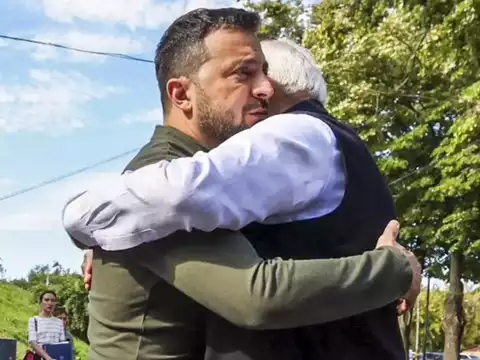Key Highlights:
PM Modi‘s foreign engagements have been received with rapt attention on the global platform at a time when Russia and Ukraine are clashing with the demand to convey India’s precarious balancing act while taking care of its interests under this policy of ‘Bharat First.’
A Tale of Two Hugs – Beyond the Overt BJP India
During the visit of Prime Minister Narendra Modi to Ukraine and subsequent meetings with the President Zelenskyy, the foreign policies of India had reached very critical junctures in recent times. This warm gesture of the lapel-hold encounter with the two leaders augurs well for Ukraine, vouching for its sovereignty, from the Indian perspective. It had the echoes of Modi’s pitch for dialogue and diplomacy as the only means through which the crisis can be averted, and that found resonance with world leaders in understanding India’s commitment to peace.
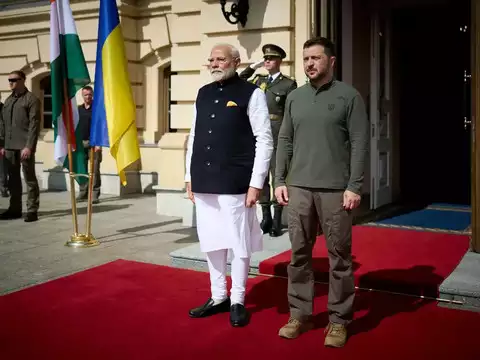
But this was in sharp contrast to another significant meeting—the hug with Russian President Vladimir Putin. Equally significant, though underplayed by the media, was Modi’s subsequent engagement with Putin. This visit underscored India’s age-old relationship with Russia as one of the key defense partners and, more importantly, showed how Modi could tread the tightrope in an increasingly geopolitically tight space without ruffling any feathers on either side.
The ‘Bharat First’ Policy: A Balancing Act in Picking Sides in a Global Conflict
The ‘Bharat First’ policy has been at the center of PM Modi’s approach to international relations. The policy remains one of national interests but can theoretically position India as a neutral powerbroker in the midst of global conflicts. On the one hand, this strategy has come under scrutiny with the entire background of the Russia-Ukraine war, while on the other, India is balancing its historical ties with Russia and the growing relationship with the West.
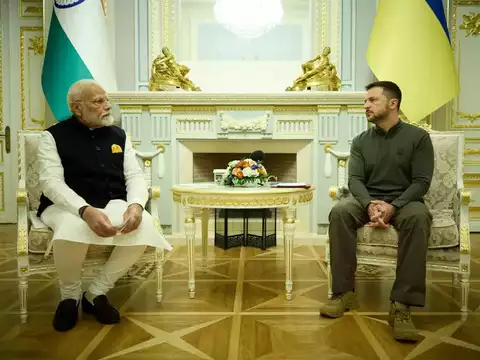
That would probably be the position that the Indian government has decided to take in the conflict: neutrality. It has abstained from the United Nations vote and maintained trade relations with Russia. Yet, the recent engagements by Prime Minister Modi on the foreign policy front really indicate a nuanced diplomacy, wherein the interest of peace will be served—both economically and strategically.
Modi’s visit to Ukraine, in particular, shadows the changed configuration of Delhi’s foreign policy towards a subtler regional balance: keeping both warring sides at close quarters so that the conflict remains local and does not engulf the whole region. With visits to both Zelenskyy and Putin, Modi succeeded in asserting his country’s position once again by being able to play the role of a mediator who has to reconcile these warring parties.
India’s Strategic Interests in the Russia-Ukraine Conflict
Strategically, for India, its position in the Russia-Ukraine conflict hinges on several important considerations. It remains one of India’s important defense partners, a country that India sources most of its supplies from in terms of military equipment. Therefore, maintaining strong ties with Moscow is essential for India’s security and strategic interests. Russia’s support in international forums, particularly the United Nations, is of a critical mass for the wanted alignments of India.
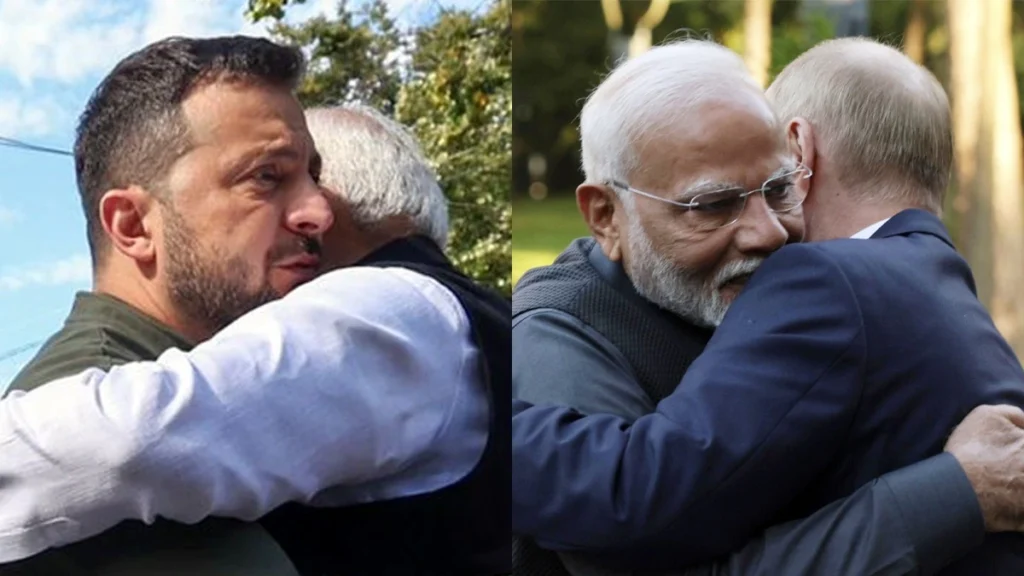
On the other, Ukraine is an important partner in the overall Indian energy security strategy. An interruption in the passage of Ukraine is vital for uninterrupted supplies, as a huge chunk of the country’s oil imports pass through the Black Sea region. At the same time, India is building up strong economic links with Europe currently, so it becomes extremely important to engage with Ukraine and the European Union to ensure an unhindered long-term stability in the region.
Global Reactions to Modi’s Diplomatic Maneuvering
By and large, Prime Minister Narendra Modi’s diplomatic efforts have won him accolades and, on occasions, some doubts on the world stage. The appeal by India for a dialogue and peaceful settlement of the issue was even received positively by western nations, as they saw a prospective mediator from this region. However, some felt a bit critical, saying that an equivocal stand by India would be seen as silent support for Russia, working its own interest while causing damage to its relations with Western powers.
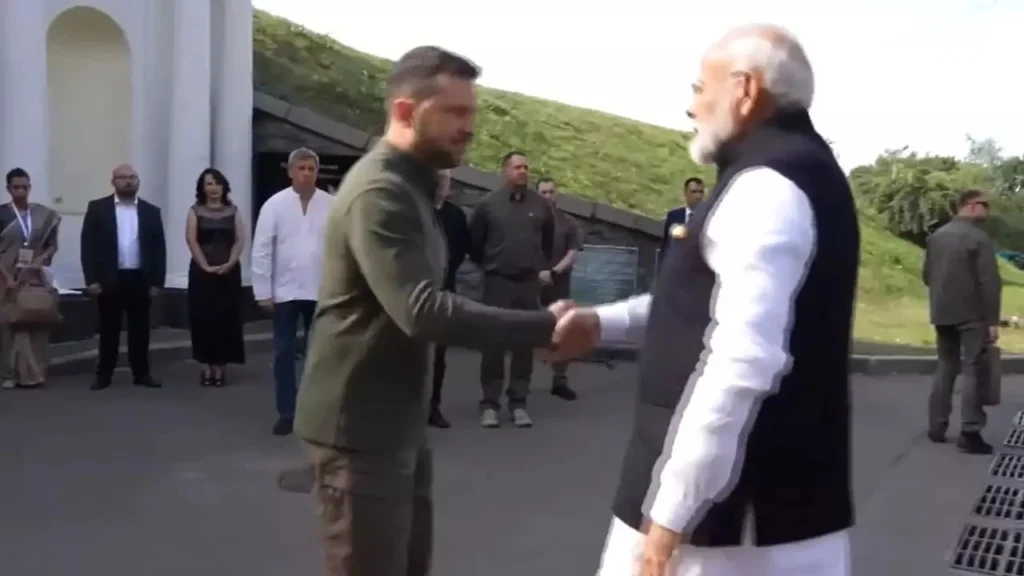
Within India itself, the diplomatic encounters of Modi have been celebrated to pursue the ‘Bharat First’ policy. According to political analysts, the fact that Modi can engage both Russia and Ukraine without putting the relationship with India at stake has been an indicator of mature and strategic foreign policy of India.
The Role of India in Shaping the Future of the Conflict
As Russia-Ukraine conflict carries on, role of India as a neutral power broker has been getting more into focus. The recent hectic diplomatic engagement by Prime Minister Modi shows that a country is strengthening its commitment to peace and stability while safely guard its national interests first under ‘Bharat First’ policy. Prime Minister Modi’s meetings with Putin and Zelenskyy underline strategic autonomy for India to shape the way forward in the region amid global challenges.
A lot of attention to the diplomatic activities of India is on the cards ahead, with the world looking at New Delhi to take the lead in resolving one of the most significant conflicts of our time.
Sources: Times of India, NDTV
To Get Latest News Updates Click Here
